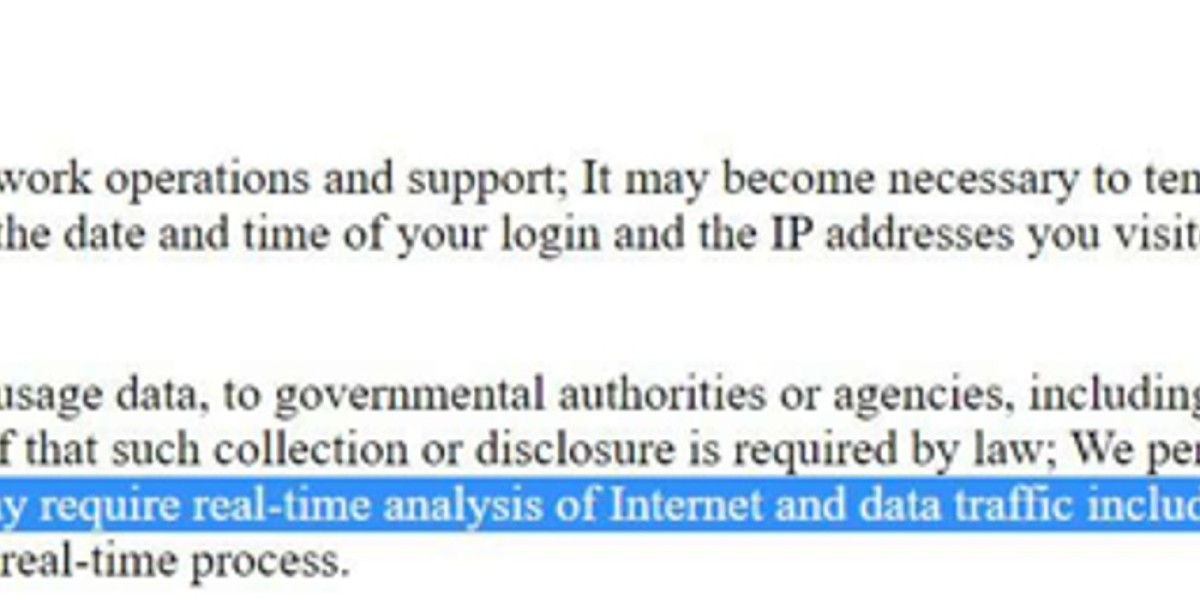The Evolving Landscape of Content Creation: Understanding Content Rewriters
In today's digital age, content is king. Organizations, people, and organizations throughout the world rely on a consistent stream of fresh, appealing, and relevant content to get in touch with their audience, develop authority, and drive success. Nevertheless, the sheer volume of content required can be frustrating. This is where content rewriters, powerful tools and services created to repurpose and improve existing text, enter the spotlight.

Content rewriters, in their essence, are developed to take pre-existing content-- whether it be articles, blog posts, website copy, or any other kind of written product-- and transform it into something new. They are not about developing content from scratch, but rather about giving existing content a fresh coat of paint, adjusting it for various purposes, or merely generating variations to broaden reach and prevent duplication.
This article rewriter software dives deep into the world of content rewriters, exploring their performances, different types, advantages, restrictions, and best practices for utilizing them successfully. Whether you are a skilled content creator, a budding marketer, or simply curious about these tools, comprehending content rewriters is progressively crucial in navigating the ever-expanding digital content landscape.
Exactly What Are Content Rewriters?
At their core, content rewriters are tools or services that control existing textual content to produce a different version of the same info. The underlying goal is to modify the phrasing, sentence structure, and phrasing of the original text while keeping the core significance and message. Believe of it as paraphrasing on a larger, often automated, scale.
Content rewriters run on the principle of linguistic improvement. They might utilize numerous techniques, including:
- Synonym Replacement: Replacing words with their synonyms to modify vocabulary.
- Sentence Restructuring: Changing the order of words and phrases within sentences to develop different sentence structures.
- Expression and Clause Modification: Rewording phrases and provisions to reveal the same concepts in alternative ways.
- Summarization and Expansion: Condensing or elaborating on existing text to change length and depth.
The motivations for using content rewriters are varied but often revolve around these essential goals:
- Avoiding Plagiarism: Rewriting content is a way to develop special versions of existing material, especially helpful when drawing inspiration from sources without straight copying them.
- Developing Fresh Content from Existing Ideas: Repurposing older content or adapting successful pieces for new platforms or audiences.
- Increasing SEO: Generating variations of website content with slightly various keywords to target a broader series of search terms, while aiming to avoid replicate content penalties.
- Conserving Time and Resources: Rewriting content can be quicker and possibly less expensive than developing completely initial pieces, especially for regular content tasks.
- Getting rid of Writer's Block: Using existing text as a beginning point can often trigger originalities and help authors break through imaginative barriers.
Two Sides of the Coin: Human vs. Automated Content Rewriters
Content rewriters are not a monolithic entity. They broadly fall into two classifications, each with unique characteristics and abilities:
1. Human Content Rewriters (Professional Paraphrasing Services):
This method involves engaging human authors and editors to manually rewrite tool and rephrase content. Basically, it's a professional paraphrasing service. Experienced authors can deeply comprehend the initial text and artistically reconstruct it while ensuring precision, clearness, and readability.
Advantages of Human Content Rewriters:
- Nuance and Contextual Understanding: Human authors can understand subtle nuances in language, understand context, and make intelligent rewriting options that automated tools may miss.
- Premium Output: Skilled writers produce rewritten content that is typically grammatically sound, well-structured, and engaging to read.
- Versatility and Creativity: Human rewriters can tailor content to specific audiences, tones, and styles, injecting imagination and originality into the reworded piece.
- Complex Topic Handling: They can efficiently rewrite complex or technical topics while maintaining precision and clarity.
- Ethical and Reliable: Professional human rewriting services are generally more attuned to ethical factors to consider and aim to deliver really distinct and valuable content.
Limitations of Human Content Rewriters:
- Cost: Hiring human authors is generally more pricey than utilizing automatic tools.
- Time Commitment: Manual rewriting takes time, and turn-around times may be longer compared to instantaneous automated tools.
- Scalability Challenges: Scaling up human rewriting efforts can be tough and need considerable resource management.
2. Automated Content Rewriters (AI-Powered Tools):
These are software application or online platforms that utilize algorithms, natural language processing (NLP), and sometimes expert system (ai content rewriter) to instantly rewrite content. They are created for speed and performance, often supplying instant results.
Benefits of Automated Content Rewriters:
- Speed and Efficiency: Automated tools can rewrite content almost immediately, making them ideal for fast content generation jobs.
- Cost-Effectiveness: Many automatic rewriters are available as totally free tools or at reasonably low subscription expenses.
- Availability and Ease of Use: These tools are typically easy to use and accessible to anybody with an internet connection.
- Volume Processing: Automated rewriters can deal with big volumes of text quickly, making them ideal for bulk content rewriting.
- 24/7 Availability: They are offered around the clock, providing on-demand content rewriting capabilities.
Limitations of Automated Content Rewriters:
- Quality and Accuracy Concerns: The output from automated rewriters can often be generic, grammatically uncomfortable, do not have nuance, and even inadvertently alter the significance of the original text.
- Limited Creativity and Originality: Automated tools frequently count on synonym replacement and fundamental sentence restructuring, which can result in less creative and appealing reworded content.
- Contextual Misunderstandings: They might struggle with complex sentences, idioms, or nuanced language, leading to ridiculous or unreliable rewrites.
- Possible for Plagiarism Issues (in some tools): While developed to prevent direct plagiarism, some lower-quality automatic rewriters may produce content that is still too similar to the initial and might raise plagiarism concerns.
- Need for Human Review: Output from automated rewriters often requires careful human evaluation, editing, and improvement to guarantee quality and accuracy.
The Pros and Cons in Detail: Why Use (and Why Be Cautious of) Content Rewriters
To make educated choices about using content rewriters, it's essential to weigh their benefits and drawbacks adequately.
Pros of Using Content Rewriters:
- Time Savings: Rewriting is undoubtedly faster than creating original content from scratch. For tasks like generating variations for social media posts, advertisement copy, or website product descriptions, rewriters can substantially speed up the procedure.
- Expense Efficiency: Especially when thinking about automated tools, content rewriters can be an extremely affordable service for producing big volumes of content variations, particularly for companies with limited spending plans.
- SEO Benefits: By creating several variations of content with slightly various keyword focuses, rewriters can contribute to a wider SEO strategy, targeting a broader series of search inquiries and potentially enhancing online search engine rankings.
- Getting rid of Writer's Block: Staring at a blank page can be daunting. Rewriting existing content can offer a starting point, a structure to build upon, and a way to start the creative process.
- Content Refreshing and Repurposing: Breathing new life into older content or adapting content for various platforms (e.g., turning an article rewriter ai into social media snippets) is quickly achieved with rewriters.
- Maintaining Consistency: When dealing with large volumes of repetitive content (like item descriptions), rewriters can help keep a consistent tone and design while still producing variations.
Cons of Using Content Rewriters:
- Quality Degradation: Especially with automated tools, the quality of rewritten content can be a substantial concern. Output may be grammatically proper however stylistically awkward, lacking flow, or perhaps semantically unreliable.
- Loss of Originality and Voice: Over-reliance on rewriters can lead to generic and unimaginative content that does not have a special voice and character, which are vital for engaging audiences.
- SEO Penalties (if misused): "Spun" content, especially if it's poor quality and greatly keyword-stuffed, can be detected by search engines and punished, harming rather than assisting SEO efforts.
- Ethical Concerns and Plagiarism Risk (if not utilized properly): While rewriters aim to prevent direct plagiarism, incorrect usage-- such as just running content through a rewriter and declaring it as entirely initial without substantial adjustment-- can still raise ethical questions and possibly lead to plagiarism problems. It's crucial to comprehend copyright and ethical content creation practices.
- Over-Dependence and Skill Atrophy: Becoming extremely dependent on rewriters can impede the advancement of genuine writing abilities and creativity in content creators.
- Potential for Misinformation: If the original content consists of accurate mistakes, automated rewriters might perpetuate these errors in the rewritten variations, potentially spreading out false information.
Best Practices for Leveraging Content Rewriters Effectively
Content rewriters are effective tools, but like any tool, they are most reliable when used strategically and properly. Here are some best practices to optimize their advantages and reduce their threats:
- Use Rewriters as a Starting Point, Not an End Solution: Treat rewriters as help in the content production process, not replacements for human imagination and editorial oversight. The output ought to always be considered a draft that requires additional refinement.
- Focus On Human Editing and Proofreading: Regardless of whether you use human or automatic rewriters, meticulous modifying and checking by a human are essential. Focus on clarity, precision, flow, and general quality.
- Concentrate on Quality Over Quantity: Don't prioritize churning out huge quantities of rewritten content at the expenditure of quality. Objective to produce valuable and interesting content, even if it indicates rewriting less regularly but more thoughtfully.
- Understand Your Target Audience: Ensure that the reworded content remains relevant, interesting, and proper for your desired audience. Rewriting must not strip away the content's attract its target market.
- Inspect for Plagiarism Diligently: Even with reworded content, constantly run plagiarism checks to make sure originality and correct attribution if you are drawing motivation from external sources. Understanding reasonable use and citation practices is essential.
- Integrate Rewriting with Original Insights and Value: Don't simply count on rewriting alone. Improve the rewritten content by adding your own unique viewpoints, insights, information, examples, or experiences to develop really important and original pieces.
- Choose the Right Tool for the Job: If you choose automated rewriters, research study and pick trusted tools known for their quality and accuracy. Free tools might be appealing, however they typically include constraints. For vital content, think about expert human rewriting services.
- Ethical Considerations First: Always utilize content rewriters morally and legally. Never utilize them to pass off somebody else's work as your own or to develop misleading or deceptive content.
Regularly Asked Questions (FAQs) about Content Rewriters
Q: What exactly are content rewriters?
A: Content rewriters are tools or services that take existing text and rephrase it to produce a brand-new version of the exact same content. They intend to alter the wording, sentence structure, and phrasing while protecting the initial meaning.
Q: Are content rewriters ethical to use?
A: Yes, content rewriters can be ethical when utilized properly and with stability. Ethical use involves:* Using them to produce variations of your own original work.* Using them to paraphrase and re-express concepts from external sources while properly pointing out those sources.* Always aiming to include worth and originality beyond simply rewriting.* Avoiding using them to plagiarize or misinform readers into thinking reworded content is entirely initial if it is greatly obtained from another source without appropriate attribution.
Q: Are AI content rewriters as great as human content rewriters?
A: Currently, human content rewriters generally produce higher-quality, more nuanced, and more accurate results, specifically for complex or delicate subjects. AI rewriters are quickly improving, however they still typically need substantial human modifying to ensure quality and avoid errors. The "much better" choice depends on your requirements, budget plan, and the type of content you're dealing with.
Q: Can content rewriters actually enhance SEO?
A: Yes, content rewriters can contribute to SEO when utilized tactically. By creating variations of content with different keyword focuses, you can target a wider variety of search questions. However, it's essential to prioritize quality over amount. Low-grade "spun" content can actually hurt your SEO. Focus on creating important, readable, and keyword-relevant content, and use rewriters as a tool to efficiently produce variations, not as a shortcut to quality.
Q: Are content rewriters totally free to use?
A: Many automated content rewriters use free fundamental versions or complimentary trials. However, these totally free alternatives often include limitations, such as word count restrictions, fewer features, or lower-quality output. For more robust and trustworthy rewriting abilities, paid tools or professional human rewriting services are frequently needed.
Q: How do I pick the ideal content rewriter [https://velling-skaarup-2.mdwrite.net/10-things-Everybody-has-to-say-about-rewriter-online-1745705319/] for my requirements?
A: Consider these factors when picking a content rewriter:
- Your Budget: Free tools are readily available, however paid alternatives and human services use higher quality.
- Desired Quality of Output: For crucial content, professional human rewriters or higher-end AI tools are recommended. For simpler tasks, complimentary or budget-friendly automated tools may be adequate.
- Complexity of Content: For complex or technical subjects, human rewriters or innovative AI tools with strong NLP capabilities are preferable.
- Speed vs. Accuracy: If speed is paramount, automated tools are quicker. If accuracy and quality are prioritized, human rewriting is frequently more effective.
- Functions and Functionality: Look for functions like synonym replacement, sentence restructuring, plagiarism checking, and integration with other platforms if required.
The Future of Content Rewriting
Content rewriters are continuously developing along with advancements in AI and NLP. We can anticipate to see even more advanced tools emerge, capable of producing increasingly human-like and premium reworded content. However, the human element in content creation is unlikely to be totally replaced. The ability to infuse imagination, important thinking, and special viewpoints remains a distinctly human strength.
In conclusion, content rewriters are important tools in the contemporary content ecosystem. When utilized wisely, morally, and in conjunction with human know-how, they can significantly improve content creation workflows, enhance efficiency, and help people and companies grow in the competitive digital landscape. Comprehending their capabilities and constraints is key to utilizing their power effectively and browsing the ever-evolving world of content creation.







